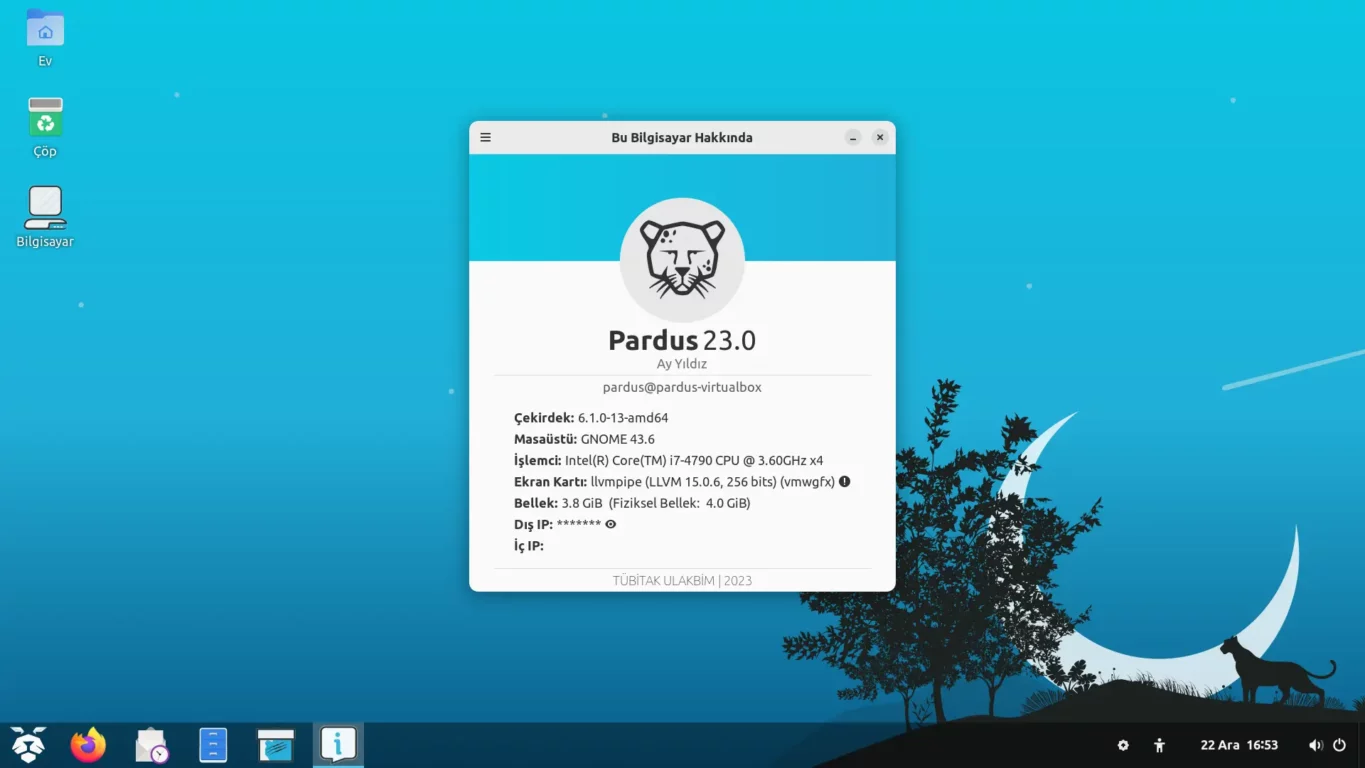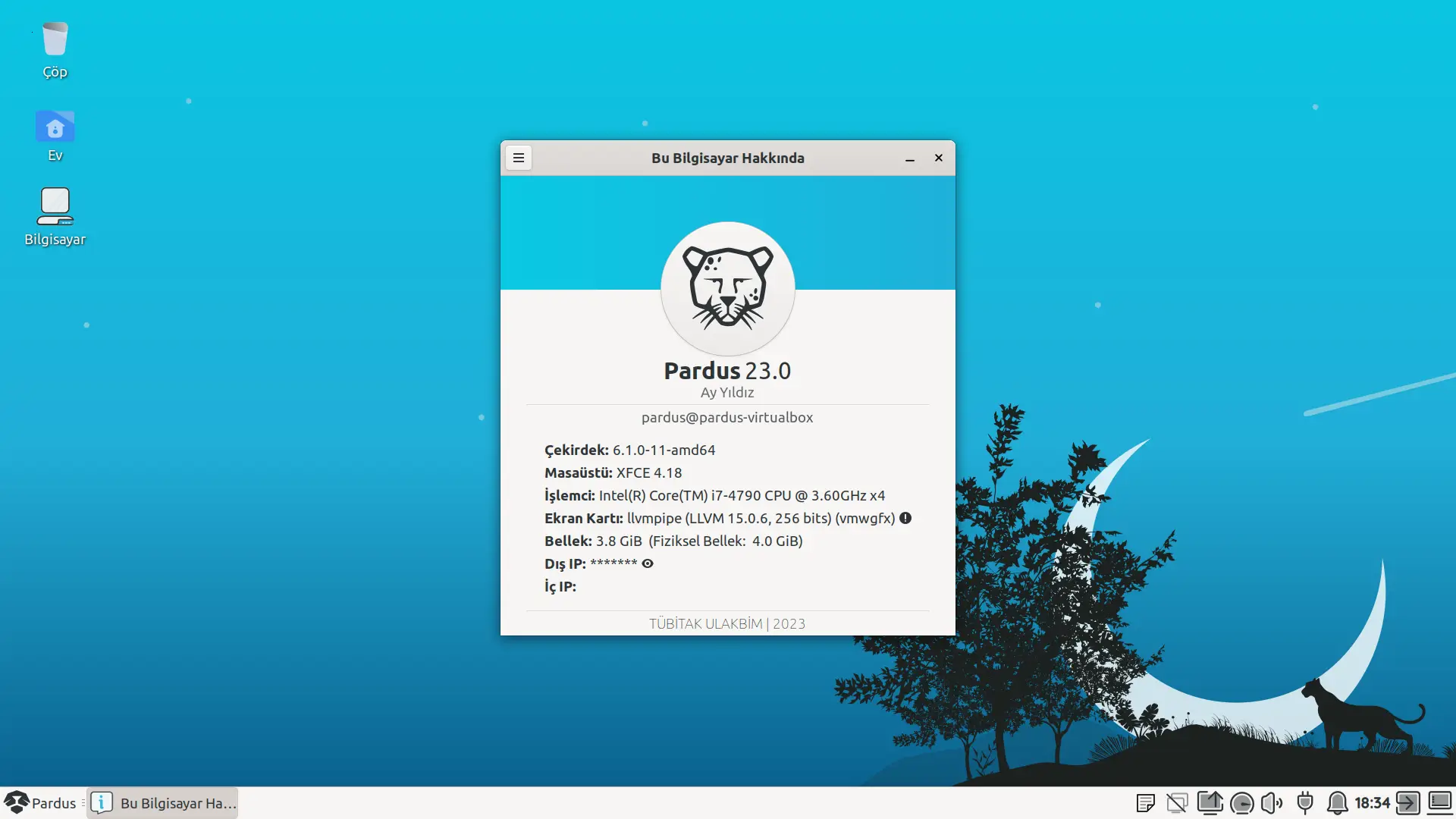
Bu yazıda Pardus üstüne yazılmış olan kitaplara hızlı bir bakış atacağız. Kim hangi kitabı yazmış, Pardus üzerine çıkan kitapları gelin, bir hatırlayalım.
İlk nesil Pardus kitapları (PiSi temelli)
İlk Pardus kitabı, Görkem Çetin tarafından 2007 yılında Seçkin Yayıncılık etiketiyle yayınlanmış. Bir ilk olması nedeniyle, son derece değerli ve tarihi bir çalışma.

“Pardus 2011” kitabı ise Atalay Keleştemur tarafından yazılmış ve 2011 yılında Kodlab Yayınevi etiketiyle yayınlanmış olup, ilk nesil Pardus için yayınlanmış son satın alınabilir kitaptır.
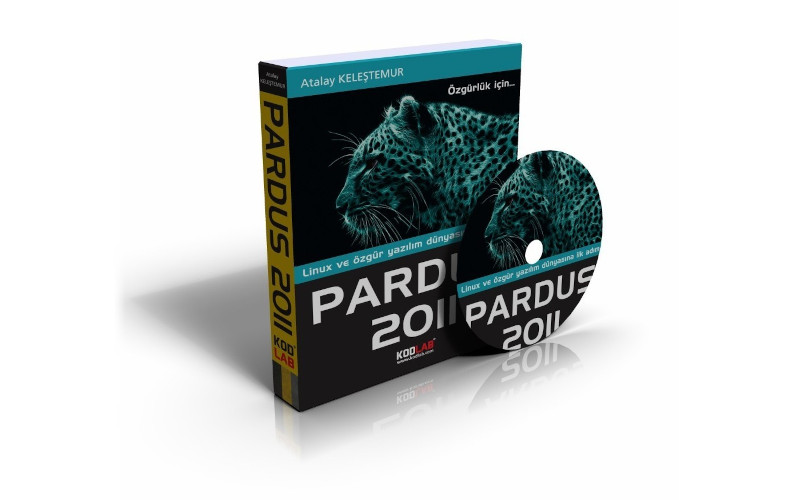
Bu satın alınabilir kitaplar dışında Milli Eğitim Bakanlığı “Mesleki Eğitim ve Öğretim Sistemini Güçlendirme Projesi” (MEGEP) tarafından “Açık Kaynak İşletim Sistemi” kitap serisi de ilk defa 2008 yılında yayınlanmış olup, konularını Pardus üstünden işlemektedir. Kitaplar daha sonra 2012-2014 yıllarında tekrar gözden geçirilmiştir.1
Bu kitaplardan başka “Pardus Kurumsal 2 Kullanım Kılavuzu” kitabının 2011 yılında yayınlandığı görülmektedir. Maalesef kitabın yazarı ve hazırlayanlar hakkında bilgi bulunmuyor.2
İkinci nesil Pardus kitapları (Debian temelli)
2013 yılından itibaren daha önceki PiSi paket sistemi ve bağımsız taban terk edilerek, Debian temelli yeni altyapıya geçiş yapılmıştı.
Pardus sitesine Belgeler sayfasında yer alan KDE üzerinden konuları anlatan “Pardus İşletim Sistemi”3 başlığını taşıyan kitabın yazarları olarak Şenol Aldıbaş, Ömer Çakmak, Aslı Koplay ve Seda Arık görünmektedir. Kitabın üstünde yayın tarihi bulunmamakla birlikte, konular Debian tabanlı Pardus 2013 sürümü üzerinden anlatılmaktadır.
Belgeler sayfasında “Pardus XFCE” ve “LPI Sertifikasyon Kitabı” diye iki kitap daha bulunmaktadır.
“LPI Sertifikasyon Kitabı”4 ilk defa 2016 yılında sitede yayınlanmıştır. Kitabın içinde yayın yılı, çeviri olup olmadığı veya yazar bilgisi yer almaz. PDF imzasında yazar olarak “Barış Şimşek” görülmektedir. Kitap, adından anlaşılacağı üzere “Linux Professional Institute” tarafından hazırlanmış olan LPI sertifika sınavlarına yönelik olarak hazırlanmış. Linux masaüstünü kullanmak isteyen son kullanıcıya yönelik değildir.
Güncel Pardus kitapları
İnternetten erişilebilen veya satın alabileceğiniz 3 adet güncel Pardus kitabı bulunmaktadır.
Pardus XFCE5
Pardus Belgeler sayfasında bulunan “Pardus XFCE”6 kitabı içinde yayın yılı ve yazar bilgisi içermemekle olup, Pardus 21 üstünden konuları işlemektedir ve 2021 yılında yayınlanmıştır. PDF imzasına göre yazarı “Şenol Aldıbaş” görülüyor.7
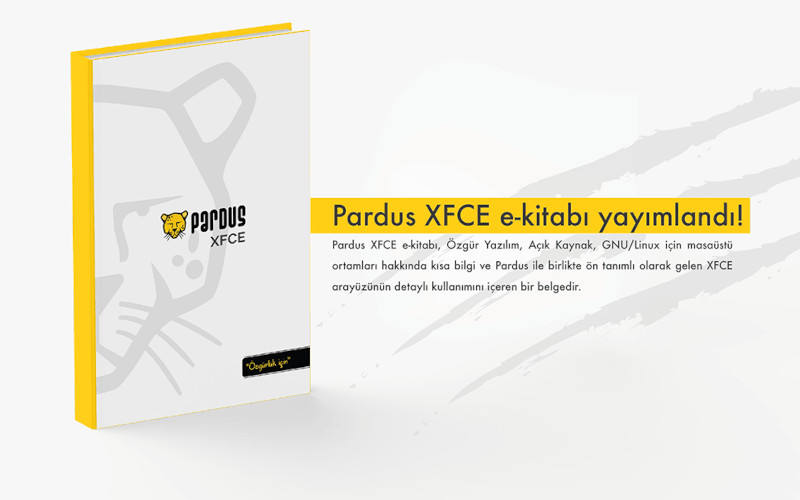
Kitap kısa bir girişin ardından sistem ayarları, dosya yönetimi, disk yönetimi, paket/yazılım yönetimi, süreç yönetimi, Pardus sık kullanılan uygulamalar, Pardus uygulamaları, LibreOffice ve Pardus Etap Uygulamaları ve Pardus kurulumu bölümlerini içermektedir.
Kitabın büyük kısmını Ayarlar (Sistem Ayarları) ile Dosya Yönetimi bölümleri oluşturmaktadır. Bu bölümleri okuduktan sonra çok muhtemel kafanızda ayarlara veya dosya yönetimine dair çok da soru kalmayacaktır.
Pardus uygulamaları isimli bölümde Pardus’a özgü olan Pardus hoş geldin, Pardus güç yönetimi, Pardus yazılım merkezi, Pardus paket kurucu, Pardus USB biçimlendirici ve Pardus Java kurucu uygulamalar tanıtılmaktadır.
Pardus kurulumu bölümünde kurulum “Grafik Arayüz ile Kur” seçeneği üstünden anlatılmıştır. Burada “Pardus Çalışan” üstünden kurulum yapılabilen bir uygulamanın daha olduğunu belirtmekte fayda görüyorum.
Pardus Sistem Yönetimi
Gökhan Arslan tarafından hazırlanmış olan kitap, 2020 yılında Kodlab Yayıncılık etiketiyle yayınlanmış olup 292 sayfadır ve konuları Pardus 19 üstünden işliyor.8
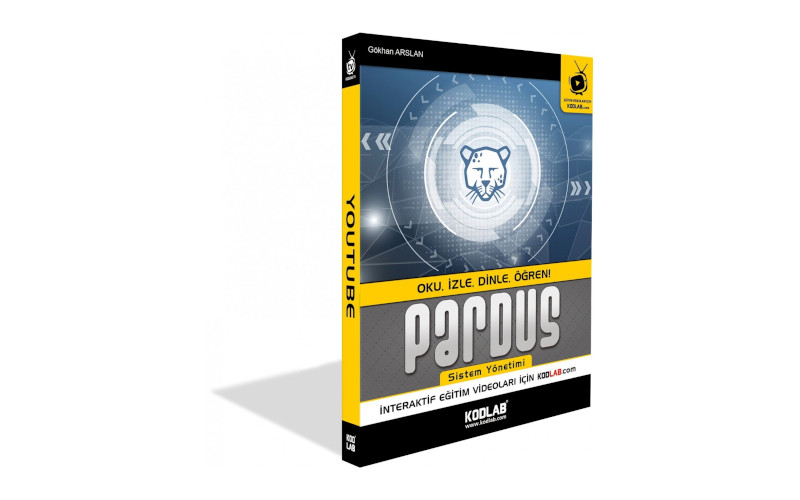
Kitabın önce çıkan bölümlerinde; Genel Linux mimarisi, kabuk (shell), çekirdek (kernel), Temel Linux komutları ve sık kullanılan komutlar, Pardus 19 sunucu kurulumu, temel ağ hizmetleri, hizmet yönetimi, disk yönetimi, görev zamanlayıcı, ağ hizmetleri, SSH, FTP ve NTP hizmetleri, LAMP, Webmin, sistem izleme araçları, Tomcat web sunucu yönetimi gibi daha çok sunucuya yönelik işlemler anlatılmaktadır. Google Play üstünden satın alınabilen e-kitap sürümü de bulunmaktadır.
Temel Linux komutlarına 30 sayfa kadar yer ayrılmış. İçerdiği konuların daha çok sunucuya yönelik olması sebebiyle masaüstü araçlarına yer verilmemiş.
Basılı kitaptaki komut satırı ekran görüntülerinin okunurluğu düşük kalmış. Bu problem fark edilmiş olmalı ki, çoğu komut ayrıca metin olarak da paylaşılmış.
Herkes için Pardus kitabı
Eyüpsultan Belediyesi’nde uzun yıllar boyunca sistem ve ağ yöneticisi olarak görev yapan ve Pardus Dönüşüm Projesi’ni yöneten Hüseyin Güç tarafından hazırlanan kitap, 2021 yılında Kodlab Yayıncılık etiketiyle yayınlanmış olup, 302 sayfadır ve konularını Pardus 19 üstünden işlemektedir.9

Kitap, Linux Nedir bölümüyle başlamaktadır. Bu bölümde Linux’un tarihçesi, özgür yazılım nedir, özgür yazılım lisansları gibi konularda bilgiler verilmektedir.
İkinci bölüm Pardus başlığını taşımaktadır. Bu bölüm aslında kendi içinde pek çok alt bölüme ayrılmaktadır. Bu bölümde Pardus masaüstü ortamını tanıma, pencere davranışları, masaüstü ayarları, görünüm ayarları, dosya ve dizin sistemi, sistem ayarları, medya ve grafik araçları, ağ ve internet araçları, ofis araçları, yardımcı araçlar, uçbirim kullanımı konuları işlenmektedir.
Kitabın 15-207 sayfaları arası bu konulara ayrılmıştır. Bu bölümdeki anlatımlar o kadar detaylıdır ki, neredeyse her ayar10 ve ne işe yaradığı üstünde detaylı olarak bilgi verilmiş.
Kitabın üçüncü bölümü “Pardus Dönüşümü Projesi” başlığını taşıyor. Bu başlıkta Pardus veya Linux masaüstü dönüşümü planlayan kişilere yönelik çok değerli tecrübe aktarımı yapılıyor. Yönetim desteğinin alınması, son kullanıcılarla iletişim, analiz, planlama, test, pilot çalışma ve canlıya alma konuları gibi son derece değerli başlıklara yer verilmiş kitapta.
Kitabın geri kalan 70 sayfası “Merkezi Yönetim Araçları” bölümüne ayrılmış. Bu bölümde Lider Ahenk Yönetim Sistemi, Liman Merkezi Yönetim Sistemi, Lider Sunucu Kurulumu, Ahenk İstemci Kurulumu, Lider Sunucu Kullanımı, Liman Sunucu Kurulumu, Liman Sunucu Kullanımı konuları işleniyor.
“Merkezi Yönetim Araçları” bölümü her ne kadar son kullanıcıya uzak olmakla birlikte, Pardus dönüşümünü hedefleyenler için başlı başına bir hazine olduğunu vurgulamak gerek.
Kitabın ek bölümünde “Muadil Uygulama Listesi” altında Windows’tan Linux’a geçiş yapacak kullanıcı ve kurumlara yönelik alternatif uygulamaların listesi de sunuluyor.
Sonuç
Pardus ve Linux’un yaygınlaştırılmasına ve Pardus/Linux üstüne yayınlanmış eserlerin sayılarının artmasına ihtiyaç olduğu gözlerden kaçmamaktadır. Linux’un sürekli güncellenen doğası gereği basılı kitapların güncel sürümleri ve güncel sürümlerle gelen değişiklikleri içermesi mümkün olamamaktadır. Buna rağmen var olan kitapların yeterli düzeyde bilgi sunabildiği görülmektedir.
Son not:
Şenol Altıbaş tarafından hazırlanmış “Pardus Arayüz Kullanımı”11 ve LibreOffice12 eğitimlerine BTK Akademi sitesi üstünden erişmek mümkündür. Eğitimler tamamen ücretsizdir.
Dipnotlar:
1 Kitaplara Milli Eğitim Bakanlığına ait http://www.megep.meb.gov.tr/?page=moduller sayfasından Bilişim Teknolojileri > Açık Kaynak İşletim Sistemi altından ücretsiz olarak erişmek mümkündür.
2 Pardus Kurumsal 2 Kullanım Kılavuzu kitabına şu adresten erişmek mümkündür: http://web.archive.org/web/20120121083515/http://www.pardus.org.tr/wp-content/uploads/Kurumsal_2_kullanim_kilavuzu_1.1.pdf
3 Pardus İşletim Sistemi kitabına şu adresten erişebilirsiniz: https://www.pardus.org.tr/kitaplar/Pardus-%C4%B0%C5%9Fletim-Sistemi-pardus.org.tr.pdf
4 LPI Sertifikasyon Kitabı’na şu adresten erişebilirsiniz: https://www.pardus.org.tr/kitaplar/LPI-Sertifikasyon-Kitab%C4%B1-pardus.org.tr.pdf
5 Bol görsel içermekte olan 180 sayfalık bu kitaba şu adresten ücretsiz erişebilirsiniz: https://www.pardus.org.tr/kitaplar/Pardus-isletim-sistemi-xfce.pdf
6 Pardus XFCE kitabına şu adresten erişebilirsiniz: https://www.pardus.org.tr/kitaplar/Pardus-isletim-sistemi-xfce.pdf
7 Yazar ile sosyal medya üstünden iletişime geçilmiş ve kitabı kendisinin hazırladığı belirtmiştir.
8 Pardus 19 ile Pardus 21 arasında kitabın anlatımını etkileyecek veya kitabın değerini düşürecek büyüklükte bir değişikliğin olmadığını vurgulamakta yarar görüyorum.
9 Pardus 19 ile Pardus 21 arasında kimi değişiklikler olmakla birlikte bu değişiklikler kitaba etki edecek veya kitabın içeriğini önemsizleştirecek boyutta değildir.
10 Tek tek saymadım, belki de cidden her ayar anlatılmış olabilir.
11 BTK Akademi üstünden ücretsiz edinmek mümkündür: https://www.btkakademi.gov.tr/portal/course/pardus-arayuez-kullanimi-16055
12 BTK Akademi üstünden ücretsiz edinmek mümkündür: https://www.btkakademi.gov.tr/portal/course/libreoffice-19817



